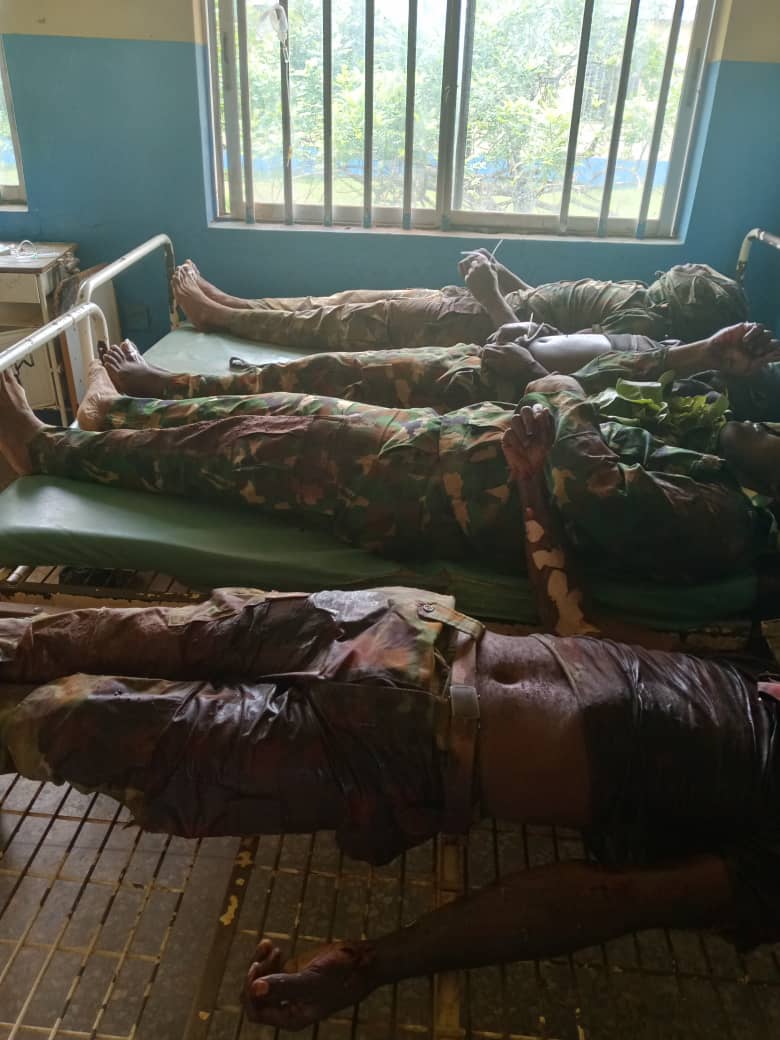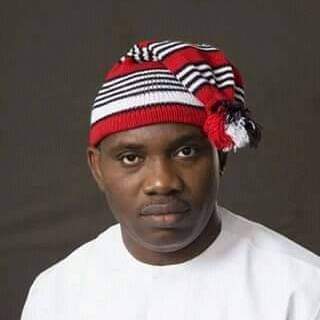By Ehichioya Ezomon
If some Nigerians were sad about the kind of nominees President Bola Tinubu picked for his cabinet, many more were heavy-hearted over the portfolios assigned to the ministers.
The composition of the cabinet was a mis-match in relation to some of the ministers’ educational and professional attainments and development, and experiences on the job over the years.
Hence Nigerians deployed words, such as depression, despondency, disappointment, discontent, disenchantment, displeasure, dismay, disillusionment, and dissatisfaction, to express their feelings over Tinubu’s allocation of portfolios to the ministers.
The President – touted as the best head-hunter among his peer-governors between 1999 and 2007 – was expected to be different from his predecessors in uninspiring appointments and allocation of portfolios.
Many had hoped Tinubu would bring his famed pedigree of selecting ‘A List’ administrators in Lagos State to bear at the federal level, to tackle the myriad socio-economic problems challenging Nigerians in his under three-month-old government.
Unlike the expeditious removal of petrol subsidy and floating of the Naira that sent prices of goods and services sky-high across all sectors – with the government struggling to provide palliatives to cushion the effects – the ministerial list was late in coming because of the President’s hedging.
Pre-his inauguration on May 29, Tinubu’s presented as single-minded and “uncrackable” under whatever guise. And he lived up to that billing from the primaries through the campaigns and election, and the transition to assuming power.
He topped his “invincibility” with some bold policies on subsidy removals and floating of the Naira. That’s why it’s befuddling that the President hid from lobbyists – “to avoid undue influence” – in rolling out a list of ministers that would satisfy expectations of Nigerians.
Tinubu, speaking through Senate Majority Leader, Opeyemi Bamidele (APC-Ekiti Central) on July 25, even asked Senators, under Senate President Godswill Akpabio, and Nigerians for prayers, to direct his thoughts and decisions aright.
The President’s words: “Let me tell you, and you must encourage me. I need to make myself unavailable for the next 48 hours because a correspondence must come to the Senate, a very crucial correspondence.
“So, Mr (Senate) President, pray for me. You should tell the rest of Nigerians to pray for me, to be able to make the right decision within the next 24 hours.”
Still, many had thought Tinubu would break with the Nigerian “protocol,” and start to tease up his ministerial nominees piecemeal – along with their portfolios – as is the practice in diverse countries, particularly in the United States.
Before the list gets to Parliament, informed citizens would’ve known and “scrutinised” the nominees for the portfolios to be assigned to them. This aids the work of the legislators in approving the nominees.
Though it creates more drama and anticipation, involement of the public in “vetting” nominees helps to expose their quality in terms of character, capacity, competence and experience, and their fit for designated portfolios.
And it’s easier to get people’s buy-in into government’s policies and programmes if given the chance to assist in shaping the content of the cabinet.
So, delaying, and hoarding the ministerial list that he presented in two batches didn’t seem to help the President – nor meet the expectations of Nigerians – when he submitted the first batch of 28 nominees on July 27 to the Senate for screening and confirmation.
It’s the same yawns and sighs when Tinubu released the second batch of nominees dominated by former Governors, party chieftains and personalities hardly known to Nigerians as capable of delivering on the job.
Nigerians had something to say – positive or negative – about the list. But generally, they gave the President some leeway, hoping he’d rectify observed “anomalies” in the list at the stage of assigning portfolios to the ministers.
But what did Nigerians see when Tinubu allocated portfolios to 45 of 48 ministers? Many classified it as “putting square pegs in round holes,” with some ministers lacking the requisite professionalism, competency and experience!
They argued it wasn’t markedly different from former President Muhammadu Buhari’s cabinet – formed after a six-month delay – with the ministers majorly as low picks, resulting in gross failure of many on the job.
Tinubu’s reasons for allocating the respective portfolios, but peruse below and evaluate if the President’s passed his acclaimed head-hunting ability to assemble the “very best” for his cabinet:
Nyesom Wike (Lawyer/Rivers), Minister of Federal Capital Territory (FCT), Abuja. Dave Umahi (Civil Engineer/Ebonyi), Minister of Works. Adegboyega Oyetola (lnsurer/Osun), Minister of Transportation. Mohammed Badaru (Accountant/Jigawa),
Minister of Defence. Bello Matawalle (Teacher/Zamfara), Minister of State, Defence. Atiku Bagudu (Economist/Kebbi), Minister of Budget and Economic Planning. Ibrahim Geidam (Accountant/Yobe), Minister of Police Affairs. Simon Lalong (Lawyer/Plateau), Minister of Labour and Employment.
Wale Edun (Economist/Ogun), Minister of Finance and Coordinating Minister of the Economy. Lateef Fagbemi, SAN (Lawyer/Kwara), Attorney-General of the Federation and Minister of Justice. Sa’Idu A. Alkali (Economist/Gombe), Minister of Interior. Yusuf M. Tuggar (Prof.-Int’l Relations/Bauchi), Minister of Foreign Affairs. Ali Pate (Prof.-Medical Doctor/Bauchi), Coordinating Minister of Health and Social Welfare. Tahir Maman, SAN (Prof.-Lawyer/Adamawa), Minister of Education. Muhammed Idris (English-Media Owner/Niger), Minister of Information and National Orientation Zephaniah Jisalo (Educationist/FCT), Minister of Special Duties and Inter-Govermental Affairs. Festus Keyamo, SAN (Lawyer/Delta), Minister of Aviation and Aerospace Development. Shuaibu A Audu (System Analyst/Kogi), Minister of Steel Development. Doris Anite (Medical Doctor-Financial Expert/Imo), Minister of Industry, Trade and Investment. Uche Nnaji (Politician/Enugu), Minister of Innovation, Science and Technology. Bunmi Tunji (Electronics-Communications Engineer/Ondo), Minister of Marine and Blue Economy. Bosun Tijani Ph.D (Economist-Systems Developer/Lagos), Minister of Communications, Innovation and Digital Economy. Adedayo Adelabu (Accountant/Oyo), Minister of Power. Ahmed M. Dangiwa (Architect/Katsina),
Minister of Housing and Urban Development.
Dele Alake (Pol. Scientist-Journalist Ekiti), Minister of Solid Minerals Development.
Lola Ade-John (Computer-System Analyst/Lagos), Minister of Tourism. Joseph Utsev (Prof.-Civil-Water Engineer/Benue), Minister of Water Resources and Sanitation. Abubakar Kyari (Business Admin/Borno), Minister of Agriculture and Food Security. Uju Kennedy Ohanenye (Lawyer/Anambra), Minister of Women Affairs. Abubakar Momoh (Civil Engineer/Edo), Minister of Youth. Betta Edu Ph.D (Medical Doctor/Cross River), Minister of Humanitarian Affairs and Poverty Alleviation. John Enoh (Pharmacologist/Cross River), Minister of Sports Development. Hannatu Musawa
(Lawyer/Katsina), Minister of Arts, Culture and the Creative Economy.
Yusuf T. Sununu (Medical Doctor/Kebbi), Minister of State, Education. Nkiruka Onyejeocha (Shipper/Abia), Minister of State, Labour and Employment. Ekperikpe Ekpo (Politician/Akwa Ibom), Minister of State, Gas Resources. Heineken Lokpobiri Ph.D (Lawyer/Bayelsa), Minister of State, Petroleum Resources. Abdullahi T. Gwarzo (Textile Engineer/Kano), Minister of State, Housing and Urban Development. Ishak Salako (Medical Doctor/Ogun), Minister of State, Environment and Ecological Management.
Tunji Alausa (Medical Doctor/Lagos), Minister of State, Health and Social Welfare. Aliyu Sabi Abdullahi (Vet. Doctor/Niger), Minister of Sta
te, Agriculture and Food Security. Mairiga Mahmoud Ph.D (Lawyer/Kano), Minister of State, Federal Capital Territory. Bello M. Goronyo (Lawyer/Sokoto), Minister of State, Water Resources and Sanitation. Maigari Ahmadu (Lawyer/Taraba), Minister of State, Steel Development. Imaan Sulaiman-Ibrahim (Sociologist/Nasarawa), Minister of State, Police Affairs.
Except three slots – and the Petroleum Resources portfolio – the President’s done with the cabinet. What remains is for the ministers to justify the confidence Tinubu’s reposed in them, and discharge their duties to the expectations of Nigerians!
Mr Ezomon, Journalist and Media Consultant, writes from Lagos, Nigeria.




